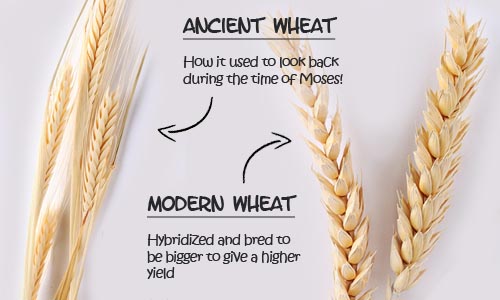Behe keeps stacking up arguments that haven't been answered by the scientific community going back to the mouse trap.
Even Behe doesn't try that story, any more...
A reducibly complex mousetrap
John H. McDonald
Department of Biological Sciences
University of Delaware
https://udel.edu/~mcdonald/mousetrap.html
All the rest are like that. Behe has even admitted that ID is science in the same sense that astrology is science.
Mutations get passed from one generation to the next
Some do, and some don't. For reasons that are completely beyond your ken.
Populations can only increase fitness by breaking functions.
That's a common creationist superstition, but it has no basis in fact. Gene duplication followed by mutation, or de novo gene mutations don't break anything at all. Again, if you were familiar even with high school genetics, this wouldn't puzzle you.
Those populations can't outcomplete the parent stock in the more common environment
Outcompete, you mean? Of course they can. If the new allele makes the population more fit than the previous genome, it will replace the old alleles. Would you like to see some examples?
while the parent stock can devolve to the "more fit" population again.
Remember, you just learned that there is no "devolution." Remember? You insisted that geneticist use the term, but when you were asked to show that, you couldn't find even one case.
Natural selection cannot act on mutations until they accumulate enough to affect fitness.
That word salad means nothing at all. A favorable mutation will immediately increase the fitness of the individual with it. If you thought about it for a moment, I'm sure you could figure out why.
But mutations accumulate in the fittest members of a population, generation after generation.
Favorable ones, or neutral ones do. As you may recall, as soon as they reduce fitness, harmful mutations are removed. You haven't given this much thought, it seems. Many harmful mutations are recessive, which mean that they only affect fitness if the individual has two copies, one from each parent. So long as you don't marry a close relative, the odds of getting two of those are very very small. But here's the interesting thing; animals that normally do interbreed with close relatives have very few harmful recessives. Can you guess why? Think about what we've discussed here.
You showed no programs that simulate common descent.
Everyone saw them. If you want me to look them up again, I'll go do it.
Scientists that understand the problem with mutational load like Crow and Sanford define mutational load as affecting even the most fit members of any population.
It's always there. This is why most populations show a mutation rate that's very close to optimal.
And so far, no one has actually measured an absolute genetic load, because one would have to sum the load of each suboptimal allele, and be able to identify an absolutely optimal allele. This is easy to do in simulations,but in real life, there's a lot of factors beyond anything you've thought about so far.
As mentioned above, mutations that will eventually cause a loss in function are already being passed from generation to generation.
Fortunately, natural selection removes any that actually cause a loss of fitness.
Natural selection won't help.
I know you want to believe that, but the evidence shows that it does. A little common sense might be useful here:
Population Size, Natural Selection and the Genetic Load
J. R. G. TURNER & M. H. WILLIAMSON
Nature volume 218, page700(1968)
How great a genetic load can a population tolerate ? This subject has recently been discussed by several authors1–5. We believe that a most important point can be stated briefly: because most organisms produce far more offspring than are necessary to maintain a constant population density, and because population densities remain, very roughly, constant, many individuals die before they are mature; it does not matter whether they die of starvation, accidents or from genetic ailments; the population can still maintain itself. It is not so much that there is a genetic load which might threaten the species, but that there is an ecological load, resulting from density regulation, which because it must, as Darwin noted, produce natural selection, gives rise to the apparent genetic load. A population will be able to tolerate what seems to us a considerable genetic load, without being, on that account, in any danger of extinction. The genetic load is, for the most part, merely an expression of the fact that not all genotypes are equally viable when the population becomes crowded. Many individuals have to die in the process of density regulation, and if those which die differ genetically from those which survive, we will observe a “genetic load”. This is the crux of the Malthus—Darwin concept of selection. This does not of course apply to genetic conditions which are markedly disabling at all population densities; there must be a decided limit (although a fairly high one, for the dead individuals simply leave more food or space for others, which otherwise would die) to the number of these which a population can contain. We suggest the term “loaded” for this last kind of selection.

